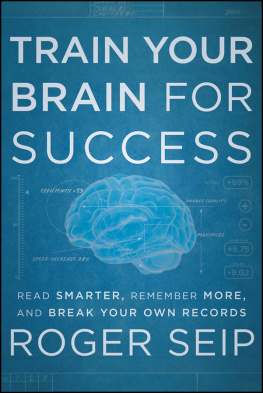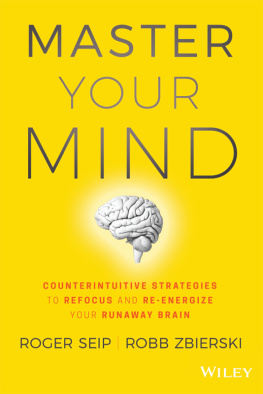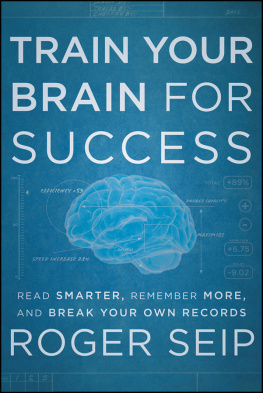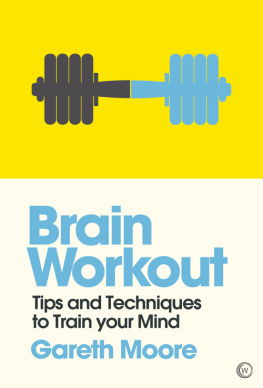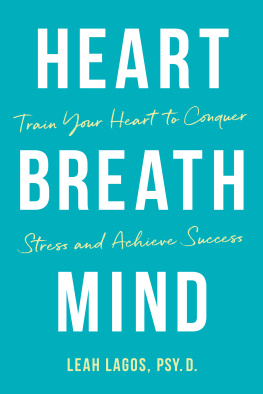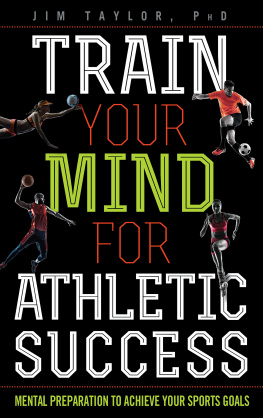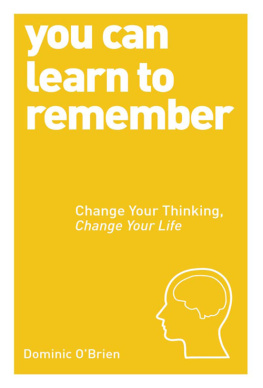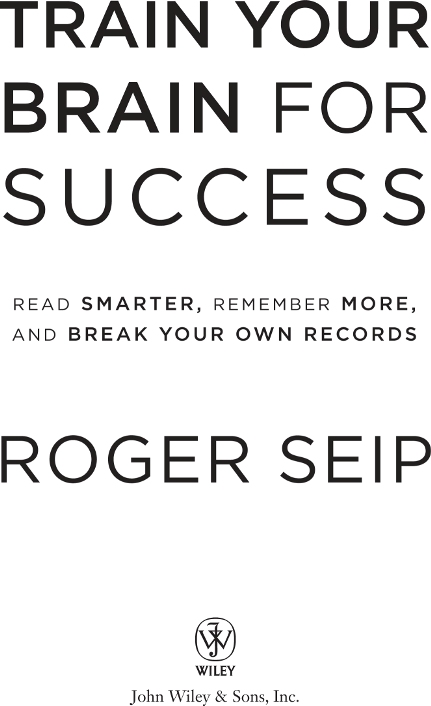
Copyright 2012 by Freedom Personal Development. All rights reserved.
Published by John Wiley & Sons, Inc., Hoboken, New Jersey.
Published simultaneously in Canada.
No part of this publication may be reproduced, stored in a retrieval system, or transmitted in any form or by any means, electronic, mechanical, photocopying, recording, scanning, or otherwise, except as permitted under Section 107 or 108 of the 1976 United States Copyright Act, without either the prior written permission of the Publisher, or authorization through payment of the appropriate per-copy fee to the Copyright Clearance Center, Inc., 222 Rosewood Drive, Danvers, MA 01923, (978) 750-8400, fax (978) 646-8600, or on the web at www.copyright.com. Requests to the Publisher for permission should be addressed to the Permissions Department, John Wiley & Sons, Inc., 111 River Street, Hoboken, NJ 07030, (201) 748-6011, fax (201) 748-6008, or online at http://www.wiley.com/go/permissions.
Limit of Liability/Disclaimer of Warranty: While the publisher and author have used their best efforts in preparing this book, they make no representations or warranties with respect to the accuracy or completeness of the contents of this book and specifically disclaim any implied warranties of merchantability or fitness for a particular purpose. No warranty may be created or extended by sales representatives or written sales materials. The advice and strategies contained herein may not be suitable for your situation. You should consult with a professional where appropriate. Neither the publisher nor author shall be liable for any loss of profit or any other commercial damages, including but not limited to special, incidental, consequential, or other damages.
For general information on our other products and services or for technical support, please contact our Customer Care Department within the United States at (800) 762-2974, outside the United States at (317) 572-3993 or fax (317) 572-4002.
Wiley publishes in a variety of print and electronic formats and by print-on-demand. Some material included with standard print versions of this book may not be included in e-books or in print-on-demand. If this book refers to media such as a CD or DVD that is not included in the version you purchased, you may download this material at http://booksupport.wiley.com. For more information about Wiley products, visit www.wiley.com.
Library of Congress Cataloging-in-Publication Data:
Seip, Roger, 1970
Train your brain for success: read smarter, remember more, and break your own records / Roger Seip.
ISBN 978-1-118-27519-1 (hardback); ISBN 978-1-118-33055-5 (ebk); ISBN 978-1-118-33123-1 (ebk); ISBN 978-1-118-33338-9 (ebk)
1. Mnemonics. 2. Memory. 3. Speed reading. 4. Reading comprehension. I. Title.
BF385
153.1'4dc23
2012010593
Foreword
People don't tap into their full potential.
Nearly everyone (certainly anyone who would pick up this book) wants their results to significantly improve. They want to grow, thrive, and make a huge impact, but the majority of their God-given potential isn't being used.
In the pursuit of personal development, most people make two dire mistakes. First, they look outside themselves for the answers. They believe that there's a magic bullet that someone has forged, and if they could only get their hands on that elusive magic bullet, everything would change for them.
Of course, nobody admits that they are looking for a magic bullet. Deep down inside, however, most people really hope that someday their magic bullet will magically appear.
After people resign themselves to the fact that there is no magic bullet, they commit the second mistake. They make the process of growth way more complex than it really is. In an attempt to take personal responsibility and fully engage, all but a very wise few overcomplicate the simple steps that create huge personal growth.
This brilliant book has no magic bullets. It is simple without being simplistic. What you will find are foundational skills and fundamental truths that have been around for thousands of years, yet are still missing from most people's lives. These skills are fun to learn, interesting to study, and remarkably easy to apply.
I've traveled with, lived with, and worked with Roger Seip for more than two decades. I've watched him do the things that he teaches here, and he's living proof that when you understand and apply the fundamentals, you win.
Although there are no magic bullets, the results certainly seem magical. Tripling your ability to remember information! Reading two or three or even four times faster than you do now! Crafting goals that propel you toward them, and utilizing time in a way that allows the achievement of everything that's really important!
From the outside looking in, these are impossible feats, right?
Not at all. These are simply the foundations that any committed student of this book will experience. And that is only the beginning.
The principles and stories shared in this book work. They've worked for thousands of people just like you. Your task is to be bold enough to believe that you too can do extraordinary things, teachable enough to let this powerfully simple information sink in, and then accountable enough to act on it. Be free!
Eric Plantenberg
President of Freedom Personal Development
Creator of The Abundant Living Retreat
Introduction How to Break Records
The very first motivational speaker I heard as an adult was a gentleman named Mort Utley. I experienced his speech in May 1989 in Nashville, Tennessee, at the end of a week of sales school with the Southwestern Company. I was 19 years old, and Mort Utley made one of the most unmotivational statements I had ever heard. He said:
Most people do not get what they want out of life.
How depressing, I thought. This guy gets paid large amounts of money to motivate people and he comes on stage and says that most people do not get what they want out of life. My 19-year-old brain went Thanks for the tip, Mort. I suppose next you'll tell me that people from France all speak French. No kidding, most people don't get what they want out of life. Why do you think I am listening to you in the first place?
I didn't want to be most people, and my guess is that you don't either. If you want to be most peoplebroke, unhealthy, and with too little time to actually enjoy your lifeyou wouldn't be reading this book. However, you have to be aware that your brain/mind has a lot of unconscious patterns that hold you back. Here's one of them.
A big part of you wants just to be average.
Starting in elementary school, through a combination of education and our brain's natural urge toward safety, we all develop a strong unconscious desire to be like everyone else around us. We want to fit in. We want to be average.
In America in 2012, here is what average really means.
- Physically68 percent of Americans 20 and over are overweight; 34 percent are clinically obese. This average gets worse every year.
- RelationshipsOver half of American marriages end in divorce, a statistic that's held for more than a quarter century.
- ProfessionallySomewhere between 75 and 85 percent of Americans actively dislike their jobs.
- FinanciallyThe average income in America hovers around $40,000, less than in the 1940s when adjusted for inflation. The average American saves less than $2,000 per year. Do the math: It means they can retire around age 96. Look around, and you'll see that at least half of American households regularly struggle with too much month at the end of money.
Next page
